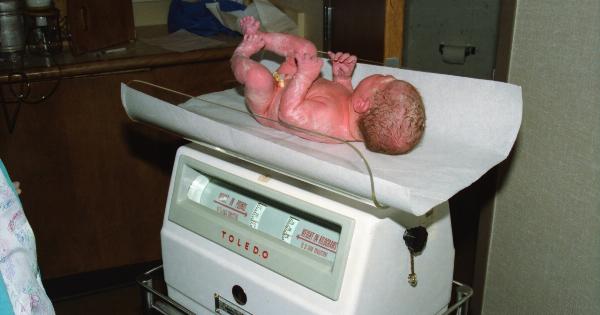When it comes to the well-being of our little ones, there is no room for taking chances. As parents, we always want what’s best for our babies, and their health is of utmost importance.
When it comes to determining how much they should eat, many parents might think they know best. However, it is crucial to trust the expertise of the baby’s doctor. They have the knowledge and experience necessary to make the best recommendations for a baby’s dietary needs.
The Importance of a Baby’s Nutritional Needs
Proper nutrition is vital during a baby’s early stages of development. Babies require specific nutrients in appropriate quantities to support their growth, brain development, and overall health.
It is during these formative years that their little bodies go through rapid changes and need all the necessary building blocks for optimal growth.
Understanding a Baby’s Unique Dietary Requirements
A baby’s nutritional needs differ significantly from those of an adult or even an older child. The proportion of macronutrients, such as carbohydrates, proteins, and fats, may vary significantly for babies compared to adults.
Furthermore, babies have higher requirements for specific nutrients such as iron, calcium, and certain vitamins.
The Role of a Baby’s Doctor
A baby’s doctor, often a pediatrician, is a specialized medical professional who has undergone extensive training and education in caring for children’s health.
They possess a deep understanding of the various stages of a baby’s development and their unique nutritional requirements.
Qualifications and Expertise
Pediatricians spend years studying the intricacies of children’s growth, development, and nutrition.
They receive comprehensive education on topics such as infant nutrition, breastfeeding, formula feeding, introduction of solid foods, and managing allergies or intolerances. This expertise allows them to make informed decisions regarding a baby’s dietary needs.
Assessing Individual Needs
Every baby is unique, and their nutritional requirements may differ based on factors such as growth rate, overall health, and any underlying conditions.
A baby’s doctor is equipped to evaluate these individual needs and provide personalized guidance.
Monitoring Growth and Development
A key responsibility of a baby’s doctor is monitoring their growth and development. Through regular check-ups, doctors assess a baby’s weight, height, and head circumference to ensure they are progressing as expected.
If there are any concerns about a baby’s growth, the doctor can make appropriate adjustments to their diet.
Addressing Potential Challenges
Feeding challenges, such as difficulty latching during breastfeeding or transitioning to solid foods, can arise during a baby’s early years.
A baby’s doctor is experienced in dealing with these challenges and can provide guidance and solutions tailored to the individual situation. They can offer advice on proper feeding techniques and suggest appropriate modifications to ensure the baby’s nutritional needs are met.
Staying Informed About Research and Guidelines
Baby nutrition guidelines and recommendations often change as new research emerges. Pediatricians actively stay updated with the latest information on infant nutrition to provide the most accurate and current advice to parents.
Their knowledge is based on evidence-based research, ensuring that their recommendations are backed by scientific data.
Keeping an Eye on Allergies and Intolerances
Food allergies and intolerances can significantly impact a baby’s health and well-being. A baby’s doctor is trained to recognize the signs and symptoms of common allergies and intolerances.
They can help parents navigate potential dietary restrictions or modifications necessary to keep the baby safe and healthy.
The Role of Parents
While a baby’s doctor plays a crucial role in determining their dietary recommendations, parents have an essential part to play as well. Parents are responsible for feeding their infants and should follow the doctor’s guidance diligently.
By working together with the doctor and implementing their recommendations, parents can ensure their baby’s nutritional needs are met effectively.
Conclusion
When it comes to determining how much a baby should eat, there is no doubt that the baby’s doctor is the most reliable source of information.
They have the qualifications, expertise, and experience necessary to make informed decisions about a baby’s nutritional needs. By following their guidance, parents can rest assured that their precious little ones are receiving the best possible nutrition for healthy growth and development.




























